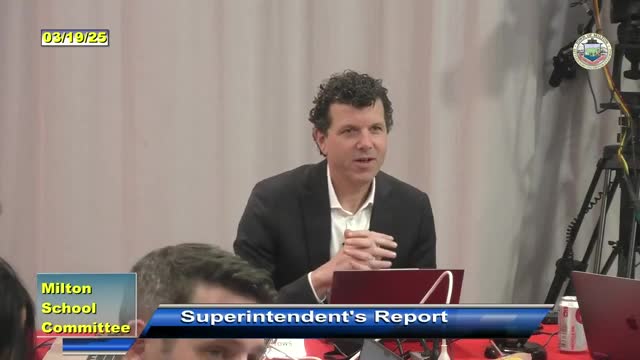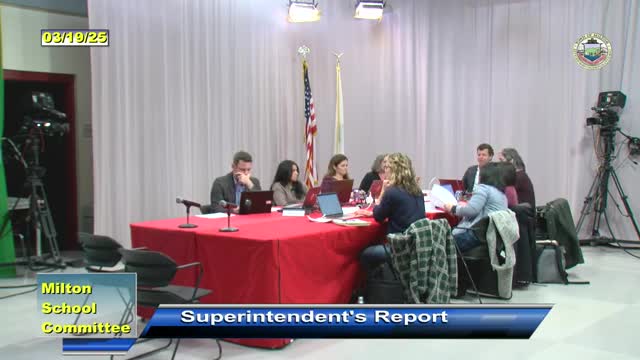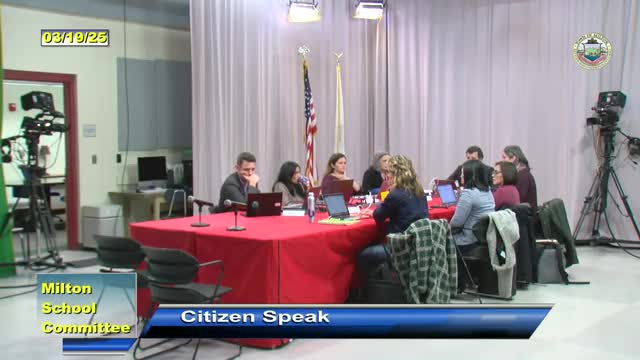Article not found
This article is no longer available. But don't worry—we've gathered other articles that discuss the same topic.

Milton Public Schools presents winter diagnostic results; I Ready and DIBELS show consistent midyear patterns

Milton School Committee says FY25 faces shortfall; asks Select Board to free up $1 million and trims FY26 budget growth

